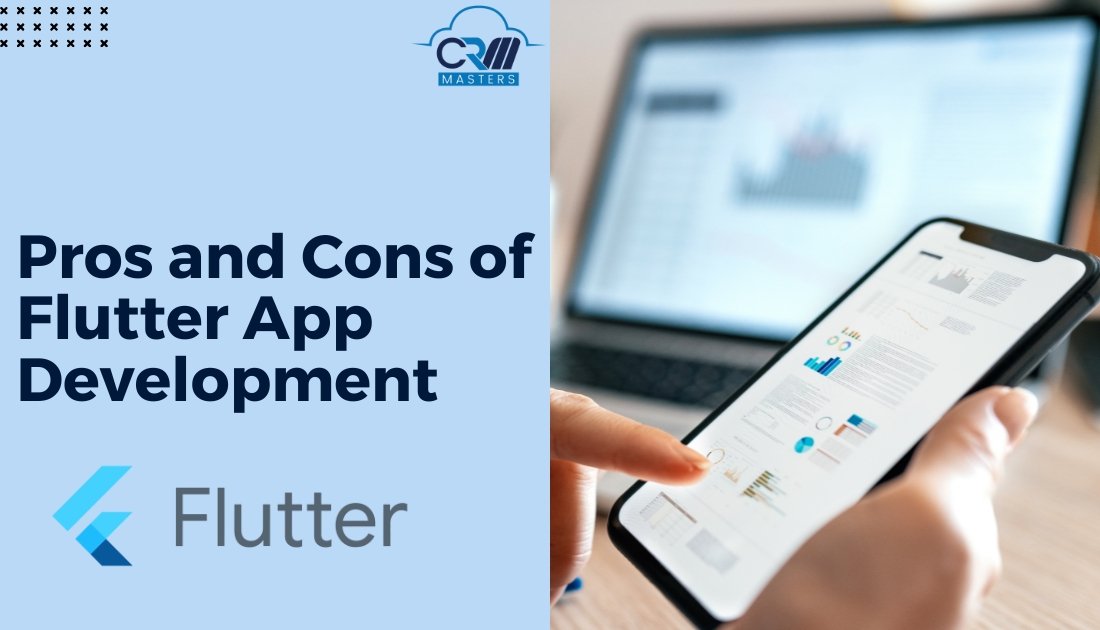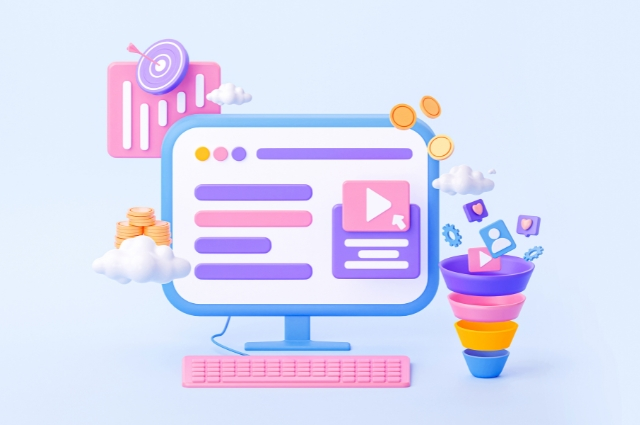
Pros and Cons of Flutter App Development
Selecting the right framework for your business in mobile app development can be challenging. Flutter, Google’s open-source UI toolkit, is very popular among developers who want to create natively compiled applications for mobile, web, and desktop from a single codebase.
With its promise of rapid development, a rich set of customizable widgets, and high performance, Flutter transforms how developers approach cross-platform app development. However, like any technology, it has strengths and challenges. In this blog post, we’ll explore the pros and cons of Flutter app development, providing insights to help you determine if it’s the right fit for your next project.
What is Flutter?
Flutter creates native-quality web, mobile, and desktop apps from a single source code base. It is one of the most valuable modern tools for creating beautiful cross-platform apps. Flutter renders native code on every device and operating system. For example, It is natively compatible with Android, iOS, Linux, macOS, and Windows devices.
Overview of Flutter Architecture
The Flutter tool incorporates three architectural layers:-
- Framework:- The most well-known feature of Flutter is that it is based on the Dart programming language.
- Engine:- This layer is written in C and C++ and includes graphics, accessibility, text layout, and other necessary APIs.
- Embeddar:- A Flutter embedder is a tool that helps the Flutter application run on any operating system.
Famous Application Using Flutter
- Google Pay
- Google Ads
- eBay Motors
- Tencent app
- Groupon
Pros of Flutter App Development
1) Fast Development
With Flutter’s fast development feature, developers can view changes to the application in real-time as they modify the code, which can significantly improve the speed and productivity of app development.
2) High Performance
Flutter provides fast, seamless animations and transitions and is optimized for older devices. The framework is built for speed, making it an excellent option for high-end mobile apps.
3) Cross-Platform Development
Flutter can also create web and desktop apps in addition to mobile app development. This makes It a powerful tool for creating applications that can run on multiple devices without problems.
4) Open Source
Flutter is free, open-source, and cross-platform. This means that developers and companies of all backgrounds can use it. The large number of developers and users who use Flutter implies it will continue to grow and develop.
5) Beautiful User Interface

Flutter offers a wide range of customizable widgets that you can use to create beautiful and easy-to-use interfaces. The framework strongly focuses on design and visual impact, making it an excellent option for app development projects with a high visual impact.
6) Hot Reload Feature
Hot reload is one of the best features of Flutter, as it helps to accelerate application development.
7) Native-Like Performance
One of Flutter’s most significant benefits is integrating with Skia, a graphics engine that allows fast and optimized development. It also differs from native apps because it does not use interpreters or intermediate code representations.
8) Reduced Development Time
The application development requirements for Flutter are much lower. As a result, there are no extra maintenance charges. Larger apps using unique features are possible with Flutter.
Also Read: How to Create an App Using Flutter
Cons of Flutter
1) Steep Learning Curve
Dart is a programming language that Flutter uses. It can be difficult for some developers to get used to and complicated for those who need to learn how to use it.
2) Problems with iOS
Flutter works on both iOS and Android. However, since Google created Flutter, Android apps have gained an edge. It’s not a big deal, but it’s something to consider if you encounter any issues in the future.
3) Limited Number of Third-Party Libraries
Flutter is relatively new to the scene, so it can’t be said that it’s built like a native language. Developers still have a lot of work to do, especially when it comes to building libraries.
Future of Flutter
Flutter is one of the most popular frameworks for developers and companies. It has grown significantly in recent years and is now used by many companies to create great mobile and web apps.
In the years ahead, we can expect Flutter to continue to grow and develop, becoming an even more effective framework for building high-performance, modern applications. Google will continue to invest in Flutter, adding new functionalities and bug fixes, and Flutter’s large developer and user community will continue to grow and improve.
One area where Flutter can grow is in the development of desktop and web apps. Since its launch on the web, Flutter has become a tool for building applications that run on multiple devices. The framework’s popularity is expected to grow as more companies use Flutter to develop web and desktop apps.
Conclusion
The future looks very promising for Flutter as it continues to grow and develop. With its emphasis on design and performance and its ability to work across multiple platforms, Flutter is on track to become a leader in mobile, web, and desktop app development over the next few years.
Ready to build your next app with Flutter? Contact us today to get started!
CRM Master’s Infotech is a trusted Flutter app development company. We build high-performance applications using Flutter and are committed to providing a smooth user experience on all platforms.












